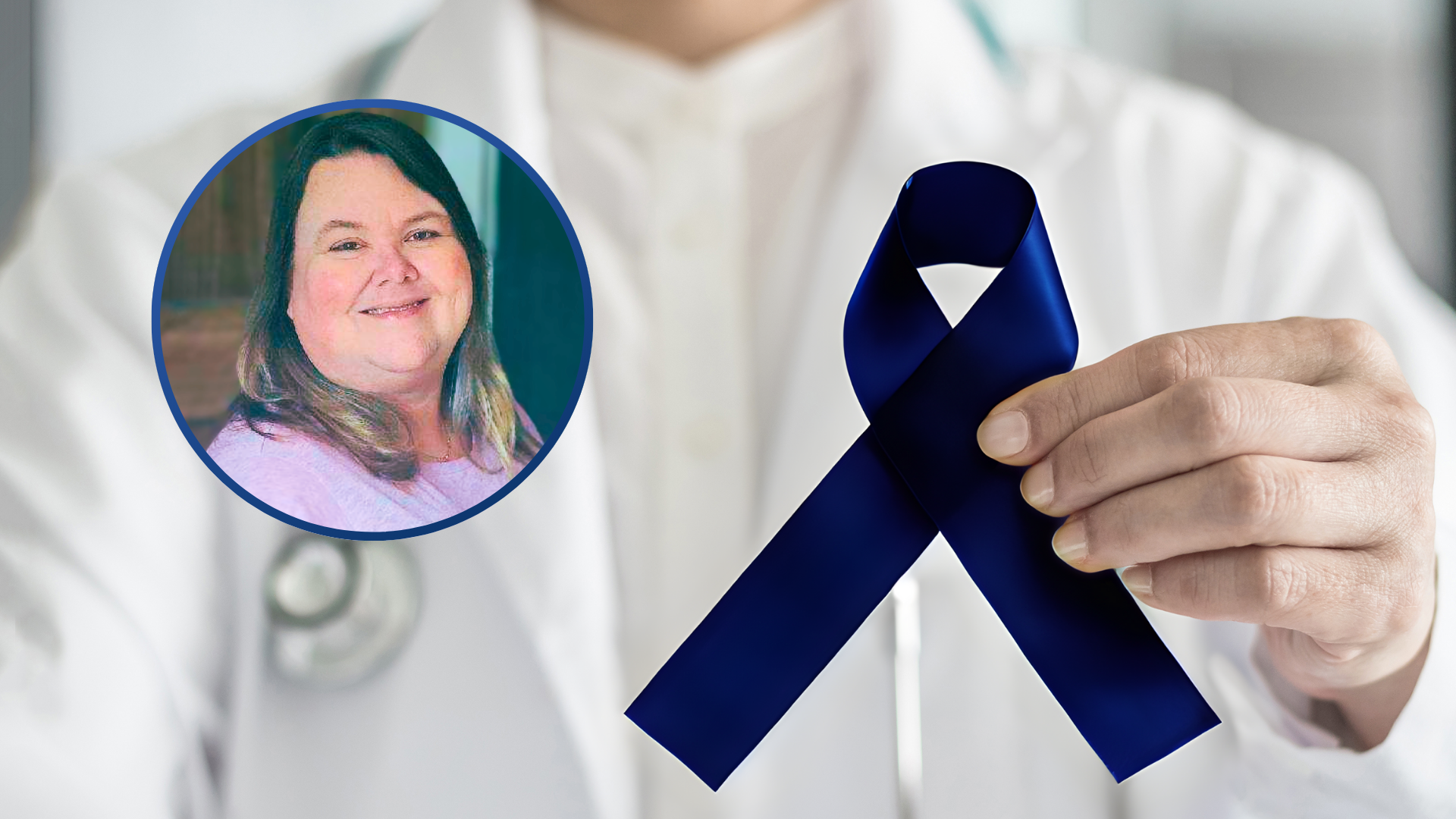In 2017, Mindy Simons had several things she wanted to bring up to her primary care doctor.
“I fainted several times. Then I felt very weak on a trip I took. I also began craving crushed ice constantly. Something I read about that concerned me a lot,” says Mindy, a financial recovery specialist for BlueCross BlueShield of Tennessee.
Tests her doctor ordered pointed to anemia, a condition where there aren’t enough red blood cells to carry oxygen to the body.
“My doctor called and told me to go the emergency room right away,” explains Mindy.
Tests there to find the source of Mindy’s anemia quickly followed, including a colonoscopy. That’s when things became even more concerning.
“My doctor said I had stage 4 rectal cancer,” Mindy recalls. “For someone with no family history of colorectal cancer, it was a shock. I was only 44. All I could think was ‘what do I do now?’.”
Getting through treatment and surgeries
Mindy remembers the following weeks and months as a daze of exams and tests. She started four months of chemotherapy followed by six weeks of radiation.
She then had surgery to remove her rectum and lymph nodes. During this procedure, the surgeon placed a colostomy bag to help Mindy’s body eliminate its waste.
Recovery from the surgery took months. She later had follow-up surgery to repair a hernia in her abdominal wall and replace the first colostomy bag. She also had radiation for spots on her lungs and started oral chemotherapy.
“It was a long road. Over and over, I kept telling myself I was going to be fine. That’s how I pushed through it,” Mindy remembers.
The path forward
In October of 2019, Mindy’s doctor told her tests showed no evidence of cancer. But she stayed on the oral chemotherapy treatment until October 2021.
While she’ll have a colostomy bag for the rest of her life, she’s appreciative of the stage she’s in now which means reducing the number of tests to once a year. This is letting her get back to the more normal routines of family life she knew before her diagnosis, surgeries, and recovery.
She doesn’t like to dwell on what could have happened if she hadn’t gone to the doctor about her symptoms. She says she is living with cancer and focuses on staying positive and encouraging others to get colon cancer screenings.
“If you think a colorectal cancer screening is uncomfortable, finding it early or preventing it is much better than what I’ve experienced,” she said.
Guidance on screenings starting at 45
Changes made a few years ago to guidelines for colorectal screenings – starting at 45 instead of 50 for those at average risk – reflected an increase in the number of Americans diagnosed at younger ages, according to BlueCross Medical Director Dr. Susan Owensby.
Prompting this change was an estimation that about 12% of colorectal cancer cases would be diagnosed in people under the age of 50 by 2020.
“Colonoscopy is the most comprehensive screening because it gives a view of the whole intestine,” said Dr. Owensby.
These can detect growths called polyps on the lining of the intestines. Not all these polyps are cancerous, but they may become so over time.
More about screening recommendations
Those considered at average risk for colon cancer should begin colorectal cancer screenings at age 45.
If you have a higher risk for colorectal cancer, talk to your doctor to see if you need screenings before age 45. These risk factors include:
- Family history of colorectal cancer or certain types of polyps
- Personal history of colorectal cancer or certain types of polyps
- History of inflammatory bowel disease (ulcerative colitis or Crohn’s disease)
- A known or suspected family history of a hereditary colorectal cancer syndrome, such as familial adenomatous polyposis (FAP) or Lynch syndrome
- History of radiation to the abdomen or pelvic area to treat a prior cancer
Learn more about colorectal cancer, screenings and prevention.
Common signs and symptoms of colorectal cancer
- A change in bowel habits, such as diarrhea, constipation, or narrowing of the stool, that lasts for more than a few days
- A feeling that you need to have a bowel movement that’s not relieved by having one
- Rectal bleeding with bright red blood
- Blood in the stool, which might make the stool look dark brown or black
- Cramping or abdominal (belly) pain
- Weakness and fatigue
- Unintended weight loss
Signs common in those who develop early-onset colorectal cancer
- Diarrhea
- Rectal bleeding
- Abdominal pain
- Iron deficiency anemia
Get more information about specific health terms, topics and conditions to better manage your health on bcbst.com. BlueCross BlueShield of Tennessee members can access wellness-related discounts on fitness products, gym memberships, healthy eating and more through Blue365®. BCBST members can also find tools and resources to help improve health and well-being by logging into BlueAccess and going to the Managing Your Health tab.


